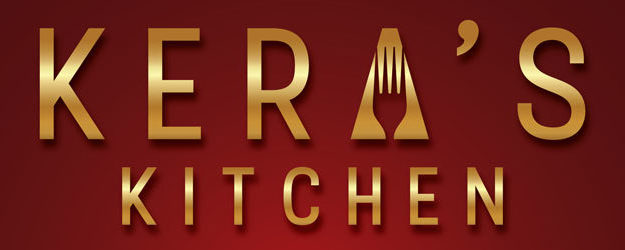What Are Good Fats and Why Do We Need Them?
There was a time not long ago when the term “good fats” was considered an oxymoron. Fortunately, the diet gurus have come around to recognizing that fats are not only good, they are downright essential. BUT it is important to note that the question “what are good fats?” is still a valid one. Not all fats are created equal! Read on to discover the differences.
Types of fat
Most of us are familiar with the common designation of fats as one of three types: monounsaturated, polyunsaturated, and saturated. But that is only a small part of the story.
Fats are also classified according to “chain length”. This may be more chemistry than you really wanted to know, but I will try to keep it brief. If you want more details, read Nourishing Traditions listed in the Resources at the end of this article.
Short-chain fatty acids are always saturated fats and are found mostly in butterfat. They have between 4 and 6 carbon atoms. Their benefits include:
- antimicrobial (protecting us from pathogenic bacteria found in the gut and also from yeasts and viruses)
- directly absorbed for quick energy
- help to boost the immune system
Medium-chain fatty acids are found mostly in tropical oils and butterfat. They have between 8 and 12 carbon atoms. The have the same benefits as those listed (above) for the short-chained fatty acids.
Long-chain fatty acids can be monounsaturated, polyunsaturated, or saturated. They have between 14 and 18 carbon atoms.
Very-long-chain fatty acids have between 20 and 24 carbon atoms and are generally highly saturated. We find these in animal fats such as organ meats, egg yolks, and butter.
Why is any of that important? Understanding the differences in fats helps to guide our decisions about the food we eat. “Essential fatty acids” is another term we often hear in discussions about fats. It refers to fatty acids that the body needs to get from foods.
Ideally we should have a balance of omega-6 and omega-3 fatty acids in our diets. The typical American diet tends to be way out of balance in this regard. Our diets are high in omega-6 and low in omega-3.
What are good fats?
Good fats come in a variety of forms. There isn’t one simple answer to this question except to say that good fats are those that contribute to your health. Yes, I know. That isn’t the answer you’re looking for! OK, let’s delve a little deeper into this question.
While there are fats in each category that can be considered “good”, it is important to look at a few qualifying questions: what is its source? how was it handled? and what are you going to do with it?
Source: If it is animal fat, is it from healthy animals? Grass fed beef. Free range poultry. Animals that have not been given growth hormones. If it is from vegetables, is it from organically raised vegetables?
Handling: In the processing, have temperatures been carefully controlled?
Use: Are you going to cook with it or use it in its raw form? Some oils should NOT be subjected to heat. See the section below regarding which fats to use for cooking.
All that being said, and assuming the above mentioned three criteria are taken into account, I think we can safely categorize the following list of fats as “good”, when they are used appropriately:
List of Good Fats
- olive oil [extra virgin, cold pressed]
- avocado oil
- coconut oil
- butterfat or ghee [from pasture-fed cows]
- flaxseed oil *
*flaxseed oil is high in omega-3 fatty acids, so it is helpful in balancing the omega-6/omega-3 dietary elements. It should ALWAYS be kept refrigerated, NEVER heated, and be consumed in small amounts. It is unstable and will go rancid easily.
Fats to avoid:
Trans fats or hydrogenated and partially hydrogenated fats should never be a part of your diet. They wreak havoc with cell metabolism. Read labels on processed foods carefully.
Are saturated fats bad?
Saturated fats play an important role in your body’s chemistry. For example: for your bones to effectively use calcium, at least 50% of the fat you consume should be saturated. Here are a few more ways in which saturated fats are needed:
- they protect the liver
- the heart draws on a reserve of saturated fat during times of stress
- the short and medium chain saturated fats help to protect the body from harmful microorganisms
- they are needed for the proper utilization of the essential fatty acids
When should you eat good fats?
A well balanced meal should include fat. This may come in the form of olive oil in your salad dressing, or it may be the naturally occurring oil/fat in foods such as nuts, avocado, egg yolk, or meat/poultry.
Fats help the body absorb some of the nutrients in our food.
How do good fats help you lose weight?
It may seem counterintuitive to say that eating fats will help you lose weight. We’ve been told for so long that we should severely limit our fat consumption if we want to lose weight. BUT the fats in our diet help us to feel satiated, and that actually helps us to eat less. Also, limiting sugar consumption and increasing the fats in our diets helps to “train” our bodies to stop using sugar as fuel and start burning fat. That is what we want!
Are fats good for the brain?
The short answer is “YES”! In fact, fat is essential to the brain. New research shows that having more fat in the diet actually reduces the risk of dementia!
Have you heard fish referred to as “brain food”? This is NOT an old wives tail. Fish rich in omega-3 fatty acids can help slow the cognitive decline that comes with aging. A study reported by the Archives of Neurology in 2005 noted that seniors who ate fish twice a week had a 13% decrease in cognitive decline.
Which Are the Good Fats to Cook With?
For baking, sautéing, and other cooking methods, choose a fat that is stable at high temperatures. This includes:
- butter and other animal fats
- coconut oil
- avocado oil
Resources
A brief word about these resources: Mary Enig has extensive knowledge in the field of lipid chemistry and the effects of various fats on the body. The books by William Davis and David Perlmutter, while focusing primarily on the effects of grains on the body, also provide helpful information about the proper place of fats in the diet.
Click on the resource link to view it on Amazon.
Nourishing Traditions by Sally Fallon and Mary Enig, PhD
Wheat Belly Total Health by William Davis, MD
The Grain Brain by David Perlmutter, MD


